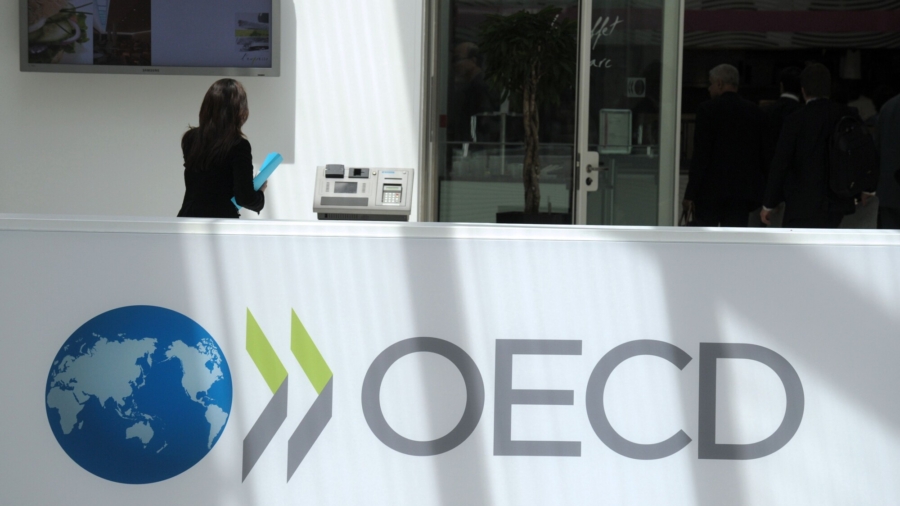The Organization for Economic Cooperation and Development (OECD) has warned developed economies to “remain vigilant” for signs of “persistent inflation.”
In its September 2021 economic outlook, the intergovernmental economic organization noted that “a rapid increase in demand as economies reopen has pushed up prices in key commodities such as oil and metals.”
“Food prices are also rising boosting prices especially in emerging markets. Tensions along supply chains caused by the pandemic have added to cost pressures. At the same time, shipping costs have increased sharply,” economists wrote.
Industries across the globe are facing acute bottlenecks in supply chains, such as material and worker shortages as well as the skyrocketing prices of materials, driven by pandemic lockdown measures. These issues have also affected consumers, who are now faced with empty shelves and higher prices on top of rising inflation levels.
The OECD noted that the outlook for inflation varies markedly, with most large economies such as the United States and some emerging market economies experiencing sharply rising inflation levels, while levels remain relatively low in other advanced economies, particularly in Europe.
“Annual inflation has risen to over 5 percent in the United States but remains at relatively low rates in many other advanced economies, particularly in Europe and Asia,” the report states.
The Labor Department reported that the consumer price index, a key inflation gauge that measures how much Americans pay for goods and services, rose about 0.4 percent in September. The year-over-year prices increased 5.4 percent, which some noted is the largest yearly increase since January 1991.
While the OECD notes that consumer price inflation is projected to moderate from 4.5 percent at the end of 2021 to around 3.5 percent by the end of 2022 among G-20 economies—remaining above the rates seen prior to the pandemic—it stresses that “sizable uncertainty remains.”
“Supply pressures should fade gradually, wage growth remains moderate and inflation expectations are still anchored, but near-term risks are on the upside,” the OECD said.
“Faster progress in vaccine deployment, or a sharper rundown of household savings would enhance demand and lower unemployment but also potentially push up near-term inflationary pressures. Slow progress in vaccine rollout and the continued spread of new virus mutations would result in a weaker recovery and larger job losses,” the report continues.
“Remain vigilant for signs of more persistent inflation,” the report adds.
The U.S. Federal Reserve and many economists maintain that the recent spike in inflation is “transitory,” and merely reflective of the ongoing effects of supply-chain breakdowns during the pandemic and shifts in consumer demand as more activities like travel become safer again.
Elsewhere in its September outlook, the OECD also called for the international community to step up its efforts to provide low income countries with the resources they need to provide COVID-19 vaccinations to their populations.
The World Health Organization (WHO) in September urged countries to hold off on giving COVID-19 booster shots throughout the month so that poorer nations could provide citizens with their first dose of the vaccine.
WHO Director-General Tedros Adhanom Ghebreyesus told reporters at a press conference on Sept. 1 that some low-income countries, including many in Africa, have less than 2 percent of their adult populations fully vaccinated.
By contrast, some high-income countries have adult vaccination rates of 50 percent.
The OECD also called on governments to maintain their support to people and businesses that have been impacted by the COVID-19 pandemic and set out clear fiscal and monetary plans pertaining to the economic recovery.
It comes as Federal Reserve officials are reportedly preparing to start cutting back on monthly bond purchases as early as the middle of next month or mid-December, meaning it will start withdrawing the extraordinary support unleashed after pandemic lockdowns paralyzed the economy.
From The Epoch Times

